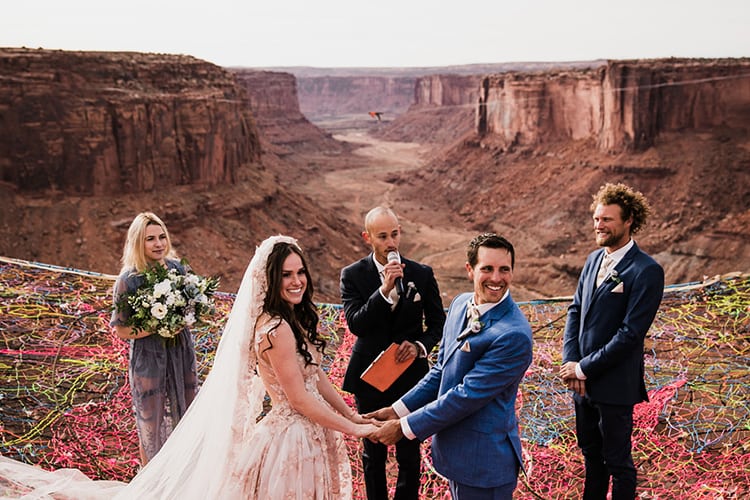
There are a lot of fun things about planning a wedding: cakes, venues, bachelor parties–but one of the less fun things is planning your marriage’s terms and conditions page. It’s easy to glance by it when its an iTunes agreement, but your own marriage you’ll want to read the fine print for. While we all like think of marriage as “till death do us part,” it’s silly to ignore that the divorce rate in the United States is roughly 50%. Sometimes planning your future together should include planning for its eventual end. Enter: the prenup. Once thought of as something to guard the treasures of mega-wealthy men against gold diggers, in 2018 prenups are more common than ever.
What is the prenuptial agreement protocol?
The short answer is that a prenuptial agreement is a legal arrangement that you and your future spouse enter into before marriage. There are no norms for prenups, but the general idea is that prenuptial arrangement will protect your assets in case you end up in divorce court. In the case of divorce, a prenup can speed up the process out of courts and save you money on lawyers and legal fees in the long run.
What kind of Assets does a prenuptial agreement protect?
The easy answer is anything. If you have a large amount of savings, you can ensure that those savings stay protected in the case of divorce. If you have property, you can ensure that you, and not your spouse, retain control when your marriage implodes.
What should my prenup say?
As every marriage is unique, there is no norm when it comes to prenups. Clauses regarding finances, property and child custody are generally a good place to start. (It doesn’t matter whose book is whose if she has the house, money, and child, right?)
Common additions to prenups include clauses about infidelity. Generally, this means that if the marriage ends because of cheating or being cheated on, the suffering spouse is entitled to a certain amount of money. However, most attorneys suggest only adding an infidelity clause if your spouse has a known history of infidelity–that’s because proving infidelity can be tricky and expensive in the long run.
But keep in mind, a prenup can say basically anything you want; it’s up to you. Nicole Kidman reportedly added a clause to her prenup with Keith Urban that stated if she ever caught him using illegal drugs, he would no longer be entitled to any of her money upon the end of the marriage. There are also reports of men added in a weight agreement to their prenups stating that their wives can’t gain more than a certain amount of weight. But if you’re the kind of person to add that to your prenup, maybe you shouldn’t be getting married anyway in the first place.
While it might seem like a fine idea to sneak in a little clause about how regularly you’d like to be getting in on, it’s also important to remember that too many lifestyle clauses (i.e. clauses about weight, social media use, and sex etc.) can weaken the legality of the document and may even make it null and void should it ever be challenged in a court of law.
Do I need a lawyer?
Yes! You absolutely can’t write your own prenup without a lawyer and expect it to hold up in courts–I don’t care how good you were with that college essay writing course. Whenever you’re drawing up legal documents, get it done by a professional. Even if you yourself are a licensed attorney, you can’t possibly be even-handed when writing a contract regarding your own divorce. Do yourself, and your fiancé, a favor and leave it to the pros (or at least pros that can be unbiased.)
How serious are prenuptial agreements?
Very. Think of prenups like any other contract: it’s legally binding. So, it isn’t something to be taken lightly. Getting out of an already agreed upon marriage contract can cost you extra time and a lot of extra money.
How much does a prenup cost?
The cost of a prenup can vary. Usually, it runs about $2,500–that’s considering lawyer fees, registration fees, and general time spent. To put that in perspective, that is about as much as it might cost to hire an estate lawyer to draw up a simple contract.
Pros and cons of prenups?
Pros: Protect your assets. You can also accrue wealth through a prenuptial agreement. If you get married and decide your spouse will be the primary breadwinner, a prenup might be a good idea. Many celebrities enter into prenuptial agreements that state that one member of the party will be paid a certain amount of money every year the couple is together.
Con: Marriage is supposed to be forever and starting off thinking about the end may not be the best place to begin. And while there are plenty of horror stories about couples who didn’t get a prenup and then had an extra messy divorce, remember that there are also plenty of couples who never got a prenup and stayed married for life. Or even all the couples who similarly forwent a prenup but were able to get amicably divorced.
What if she wants a prenup?
That’s ok! It’s the 21st century, just be happy you’re marrying such a successful and financially responsible woman. But stand your ground, if there are any clauses you strongly disagree with don’t be afraid to stand up for yourself and get your own attorney if necessary, one who will look out for your interest and your interests alone.
How to broach the subject of a prenup?
Be sensitive! The worst thing you could possibly do is to imply that you’re already thinking about divorce. While you need to be sensitive when you bring up entering into a prenuptial arrangement, it’s also a good idea to be sensitive to yourself with the arrangements made in the prenuptial agreement. If you and your future spouse are coming into the marriage with vastly different financial backgrounds, is a good idea to remember that when drawing this up with your lawyer. You don’t want to leave your future ex with nothing, but you also don’t want to end up like Roseanne Barr, who reportedly ended up paying Tom Arnold $500 million after firing her attorney for suggesting she get a prenup. Just remember sensitivity is key. Explain why you want the prenup, and be honest about your assets, don’t hide anything, and remember, no adding a weight clause.
Prenups aren’t a fun conversation to have, but whether you want to get one or not, talking about why and weighing the helpfulness of one is an important step in the planning process.
















